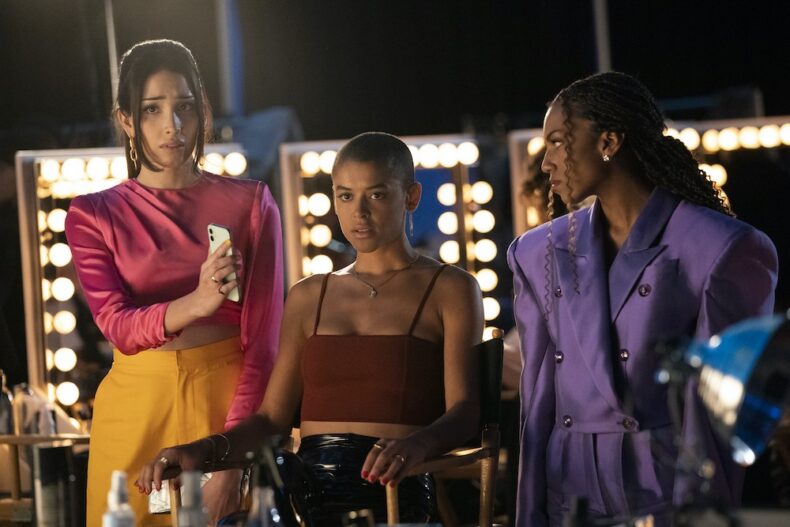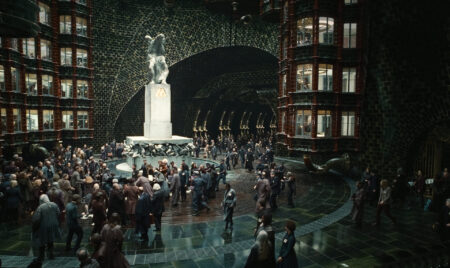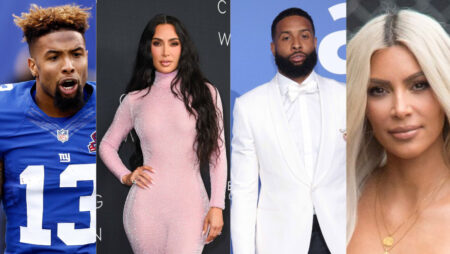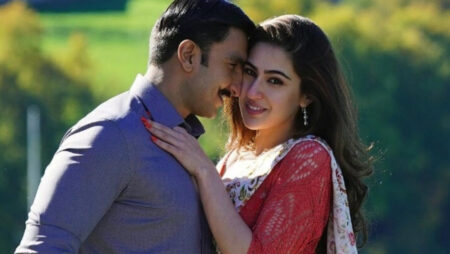The original version of the show, a glossy and cold-hearted soap about the glamorous foibles of wealthy Manhattanite teens, was a sensation when it first premiered on the CW in 2007. It was the coolest new show on TV, and watching it felt like grabbing a boozy brunch with your perfectly coiffed friend who flies into town once a month to recuperate in between threesomes in Paris and coke binges in Berlin: Oh, so that’s how the other half lives.
But by the time it ended in 2012, six seasons and countless love triangles later, Gossip Girl had grown stale and exhausting. It began repeating its stories over and over again; with each iteration, they seemed to get a little colder. The show’s ratings fell off a cliff. In its final season, it regularly pulled under a million viewers per episode, down from a peak of 3.38 million in 2008.
Nevertheless, on July 8, Gossip Girl will be back on HBO Max under the auspices of Josh Safran, a writer-producer on the original show. Watching it feels like that same glamorous old friend has called you up for brunch again, ready to repeat the same handful of stories they’ve already told you a thousand times, and oh, would you mind footing the bill, too? Times aren’t what they used to be.
Blair Waldorf was the queen bee, while her best friend/frenemy was Serena van der Woodsen (Blake Lively – see!). The permutations of their relationships with Chuck Bass (Ed Westwick), Nate Archibald (Chace Crawford, whose jawline should have got separate billing), poverty-stricken Dan and Jenny Humphreys (Penn Badgley and Taylor Momsen, who lived in a loft apartment in – ugh – Brooklyn) and Vanessa Abrams (Jessica Szohr) formed the mainstay of the show. There were also the times Blair became the princess of Monaco and Elizabeth Hurley played Nate’s boss and girlfriend so badly for 14 episodes that it is spoken of only in hushed whispers on the dark net.

The titular gossip girl was an unseen blogger (voiced by Kristen Bell) who kept track of everyone’s comings and goings posted them all and stirred things up at every opportunity. The revelation of her identity at the end of its run was as fabulously bonkers as everything that had gone before. If you objected to it, it was clear you had misunderstood the past six years of beautiful insanity.
Gossip Girl, the reboot (BBC One) is … none of that. Oh God, how I had hoped and prayed it would be good. I reckoned we all deserved it, you know? How foolish I was to think that 2021 would step up to right the many wrongs it, and the previous half-decade, have wrought.
It follows the convolutions of a new crop of overprivileged students. This time the de facto leader is an Instagram influencer, Julien Calloway (Jordan Alexander). Then there is her boyfriend, Obie Bergmann IV (Eli Brown), the priapic sybarite Max Wolfe (Thomas Doherty), the hapless Audrey (Emily Alyn Lind), and Aki Menzies (Evan Mock), Obie’s best friend and Audrey’s boyfriend.
The advent of Julien’s secret half-sister Zoya Lott (Whitney Peak) into their lives creates more jealousies, divided loyalties, sexual attractions, bluffs, double-bluffs, and shenanigans than you can shake an iPhone at. (Thanks to the wise decision to break the original’s straight stranglehold, the possibilities for hook-ups and treacheries are almost infinite.) It is almost impossible to follow, but that never mattered with the original. This one could survive it, too, were it not for two major flaws.

One is a fatal earnestness, which dooms the endeavor from the off. Gone is the bouncy fleetness of the original. Instead, these are friends who pull each other up for peer-pressuring or fat-shaming or unkindness (before carrying on as before), puncturing all the bubbles and balloons that would otherwise keep the thing aloft. Obie is one of the “guilty rich” and does charity work. Julien is the leader because she is kind. I mean – what?
It is not that these things in themselves are bad. But if you are going to remake a show at a time and for an audience that needs these circumscriptions, don’t choose Gossip Girl. Its raison d’etre was the unspeakable joy of watching people relish in lives buttressed by more money than you knew existed, drinking martinis at 16 at impossibly glamorous clubs, and the exquisite catharsis of seeing awful people being awful to each other in gloriously pitiless ways.
As well as the tone, Gossip Girl II is hamstrung by its content. Someone somewhere chose to bring in adults. The original had a few parents (and Blair’s factotum/henchwoman Dorota Kishlovsky, played by Zuzanna Szadkowski, of blessed memory) to provide B-plots and give the juvenile cast a moment to memorize the next outlandish script. This puts them on an almost equal footing – and in the most insane way possible.
The teachers, led by Kate Keller (Tavi Gevinson, once the closest thing to a real-life gossip girl there was; she would be a brilliant piece of casting if she were not a graduate of the E Hurley School of the Undramatic Arts), are bullied by their students. They decide to resurrect the all-seeing gossip girl (again voiced by Bell) as a means of cowing the teens so that Kate and her colleagues may return to the business of making them “Barack Obamas instead of Brett Kavanaughs”. It is completely stupid in entirely the wrong way.
Here’s hoping Blair and co return soon to raze this thing to the ground with the power of their inimitable scorn.













